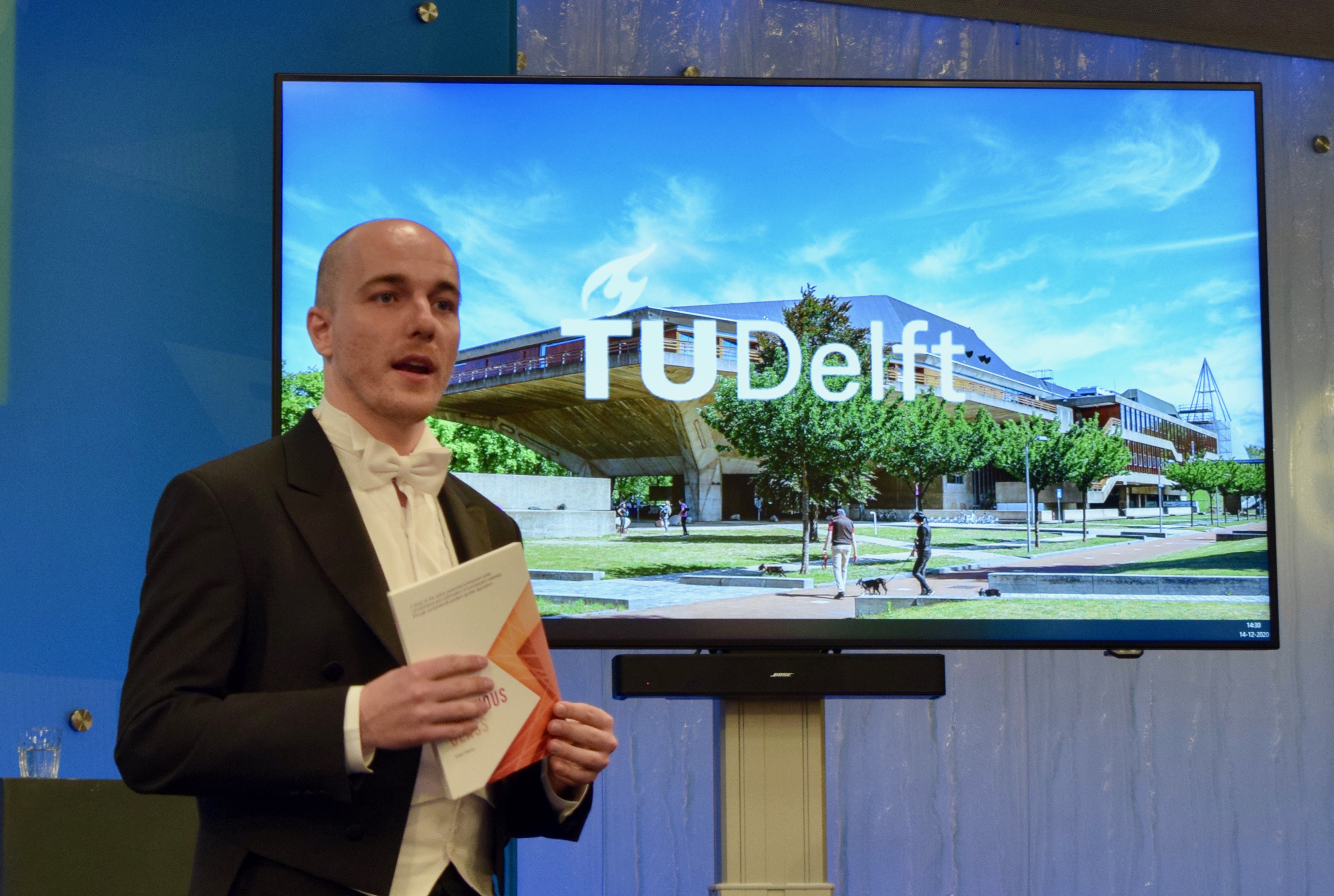PhD cum laude for Evert Merkx
We are one step closer to Luminous Glass. On December 14th 2020, Evert Merkx from the department of Radiation Science & Technology (RST) successfully defended his PhD thesis and the accompanying propositions. After a rigorous examination, the committee decided to award Evert the PhD cum laude. ‘Cum laude’ is the highest honor TU Delft can bestow upon PhDs, awarded only to the top 5% of PhD students.
Over the course of his research, Evert studied both the experimental and the theoretical aspects of luminescent solar concentrators (LCSs). LCSs are transparent electricity-generating windows. These devices convert sunlight to luminescence, which is guided to the edge of the window, where the luminescence is converted to electricity. In Evert’s thesis, such LSCs are synthesized using combinatorial gradient sputtering, a physical vapor deposition technique. The thesis shows how combinatorial sputtering can be used to quickly discover new luminescent materials, and how those can be optimized for energy-generation. Promotor Dr. Erik van der Kolk has lauded Evert’s prolificacy with 8 publications, over 10 conference contributions and more than 8 successfully supervised students. Beyond that, Dr. Van der Kolk has noted: “What makes Evert’s work exceptional is that it displays a complete package of independently designing, realizing and combining simulations and new experimental techniques. The methodology Evert developed is expected to be used in the Luminescence Materials group for a long time to come.”
Evert has already continued his research on novel applications for luminescent materials with an Open Mind grant from the Dutch Scientific Organization (NWO). He now works as a Research & Development Engineer at Physee BV, a TU Delft spin-off, researching luminescent glass for horticulture.
The thesis, “Luminous Glass: A Study on the Optics Governing Luminescent Solar Concentrators and Optimization of Luminescent Materials through Combinatorial Gradient Sputter Deposition,” can be viewed on the TU Delft research repository.
